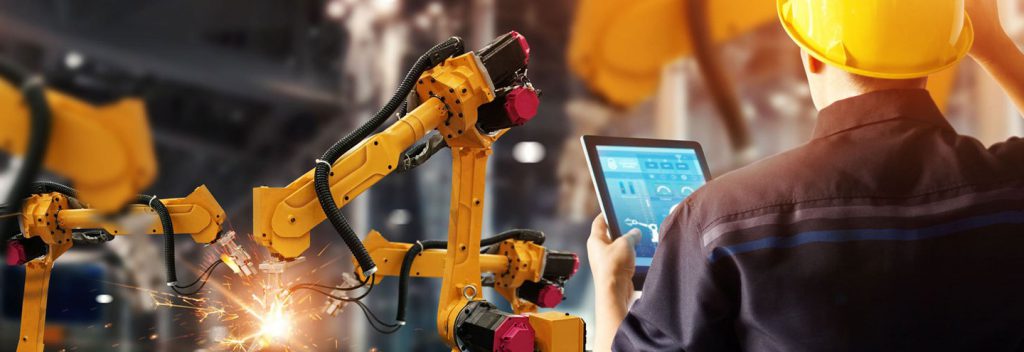Two new programs will address critical skills gap in advanced technologies
Dec. 7, 2020
Smart buildings and smart factories are the future, and as we enter the next industrial revolution, advanced technology demands interdisciplinary skills. Being able to build, troubleshoot and support next generation industrial systems will be a valuable skillset. Georgian College is launching two new programs to help bridge the skills gap in these critical areas and prepare students for industry 4.0 opportunities.
Building Automation and Systems Integration
Building Automation and Systems Integration is a new one-year graduate certificate with an optional co-op work term. The program consists of 12 courses, and students will be familiarized with a variety of paths a Building Automation Systems (BAS) technologist can take, from hands-on installation and service to innovative solutions provided through design and configuration. While the tasks are not mutually exclusive, Sam Bilamjian, co-ordinator for the Heating, Refrigeration and Air Conditioning Technician program, indicates that employers seem to prefer having workers specialized in what they do.
“A graduate of this program can work as a BAS technologist in the field, design control systems in the office and provide consultation services where engineering and problem solving is required,” says Sam. “There’s also great employment opportunities and a real need for graduates with this valuable skillset,” he adds.
And employers are looking for graduates in this field. Sam and Maureen Koski, a co-op consultant in the Engineering and Environmental Technologies department, regularly receive calls and emails from employers looking for BAS technologists. Based on input from industry representatives, the program will be offered in the evenings and on weekends to provide opportunities for those who have full-time jobs. In addition, although the program is a graduate certificate requiring a diploma or a degree for admission, Georgian has approved admitting applicants who have certain trade certificates, combined with a strong background and work experience in fields similar to building automation.

Electromechanical Engineering Technology – Mechatronics
The second new program is a three-year advanced diploma in Electromechanical Engineering Technology – Mechatronics. Mechatronics is the interdisciplinary study of electrical, mechanical and computing systems, and there is growing demand and a scarcity of talent with this valuable knowledge and skillset.
The program combines 38 courses, a major technical project and three co-op work terms. Students will gain expertise in electrical, mechanical and computer engineering, and explore how these disciplines are interconnected. They will also acquire an understanding of electronics, digital circuits, motor control, industrial automation, robotics, programmable logic controllers, pneumatics, hydraulic systems, machining, dynamics, stress analysis, the internet of things, web and database systems, and interface programming. The three co-ops provide opportunities for students to experience real-life industry skills, networking, and potential career paths.
Thanks to a recent generous donation from Magna International Inc. – a Canadian mobility tech company with comprehensive global presence – students will have an innovative state-of-the-art learning space. When complete, the new Magna Mechatronics Lab will be home to students in a variety of programs, particularly those in the new mechatronics advanced diploma program.
“Highly skilled graduates from these two programs will address a skills gap and line us up to serve the critical needs for building and manufacturing sectors as they look to secure skilled employees to support them with getting ahead of the industry 4.0 movement,” says Dr. Bill Angelakos, Dean, Technology and Visual Arts, Georgian College. “This movement continues to accelerate due to advancements in computing power, big data analytics and connectivity leveraging the internet of things, cloud computing, and machine-to-machine and human-to-machine interactions. A solid understanding and appreciation of these technologies are vital for our graduates to be relevant and successful.”
The programs will be taught by industry-expert faculty, giving students the opportunity to explore a unique blend of theoretical knowledge and applied skills. Both start in fall 2021 at the Barrie Campus.
Learn more about these programs – and how to apply – at GeorgianCollege.ca.